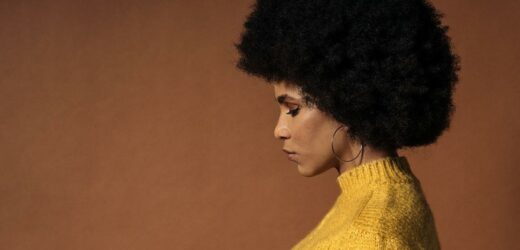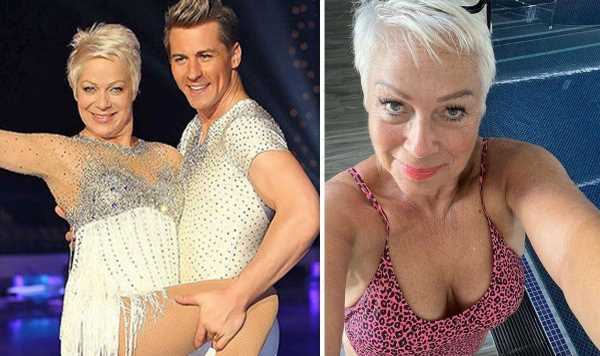Written by Nateisha Scott
The onus shouldn’t just fall on Black hairstylists.
The hair salon and the Black hair experience are special. They’re not only an intrinsic link that loops from generation to generation but also a safe space, bonded by a community spirit, where stories, hair treatments and experiences ring through the air. “It goes beyond aesthetics: from mapping out slave escapes, storing food to representing which tribe your family belonged to – there is a real cultural significance in the way we style and maintain our hair,” explains hair expert Charlotte Mensah, founder of Manketti hair range.
Yet, despite the appetite for nurturing and conditioning our textured hair in the salon, those with curly, kinky and coily tresses can’t walk into a hair salon and expect there to be a hairstylist that understands our hair. Instead, we still face disparity and a lack of education in salon spaces. “If you don’t know about that aspect of Black hair, how can you learn to respect it?” Mensah asks.
But why are so many hair salons lacking in the education to treat and care for textured hair?
“Many hairstylists when training years ago were never introduced to textured hair, so don’t have the formal education or experience,” explains Rianna Henry, freelance stylist and educator. Henry is referring to the stylists trained in the era of straightening and blowing out textured hair – when ad campaigns, red carpets, magazine covers and the runway all profiled Black hair in its unnatural state. With this aesthetic as the default, the disparity has filtered down to the local hair salons across the country and around the world.
The dramatic lack of exposure some hairstylists and salons have to textured hair has meant that there is a tremendous amount of concern and apprehension among people looking for appropriate care and styling.
“I was working at an event full of influencers and celebrities and was one of two hairdressers booked to style hair,” Henry recounts. “The other stylist was working with an influencer with textured hair and had gone in to brush, tug and pull until the young lady turned around and politely asked to leave her hair alone and asked if I could finish the style.”
Sadly, this is not an isolated experience – many Black hairstylists have had to take over in similar situations. “I hear it from models and actors all the time: the general vibe is that it’s their fault because the hair is just not ‘behaving’, so it’s straightened and broken. Textured hair shouldn’t be a specialised texture to work with. It’s hair, a fibre just like straight hair, and when educated about it, it all makes sense,” shares Jennie Roberts, Wakati hair expert, men’s grooming and afro-textured hair educator. “As an experienced hairstylist, the onus falls on us to know about the texture that was presented.”
This is not something only experienced on set, though. “I have been incredibly unfortunate in my hair journey to the point where I have had instant heat damage, a bleeding scalp and a lot of hair loss,” says esthetician and education Alicia Lartey. “People have also blamed the outcome of my hairstyles on the density of my hair or the size of my head, which is not something I can control.”
But, for Mensah, the blame is not solely on hairstylists but on organisations and award shows. “If we look at the leading haircare organisations, the boards that run them, and the awards shows that they host, this environment doesn’t come as a surprise. It is critical that if we want to see more genuine change in everyday salons across the board, we need to see more radical change from the top down.
“For example, award shows could offer more categories that focus on or are inclusive of textured hair rather than segregating them, as well as championing the voices of those with textured hair when it comes to policy making.”
However, with the surge of conversations following the Black Lives Matter movement during the pandemic, there are real changes that show the industry is heading in the right direction.
In 2021, the National Occupation for Hairdressing (NOS) now requires all hairstylists to be trained in working with textured hair. “A much larger number of stylists are educating themselves now,” says textured hairstylist and educator Anne Veck.”If the past two years have taught us anything, it’s that hair salons must be ready and willing to adapt, responding to the needs of society.”
In the natural hair community, the attitude is shifting, with people embracing every kink and curl – something the professional industry must also reflect: “There are courses for people to broaden their skills in textured hair,” says Roberts.
Alongside courses, educational shows, seminars and films, Mensah recommends diversifying your toolkit. “Things like an Afro Pik, Afro Comb, Diffuser attachment, microfibre towel and wide tooth comb should all be a part of your stylist toolkit. Focusing on rich products that use ingredients like organic natural oils and vitamins to nourish the hair is a must.
“Education is the most important factor here. Hair stylists should be expected to have a qualification that enables them to do hair. With that, it should be expected that the qualification spans a basic knowledge of all hair types. What we need across this country is a rigorous curriculum and a regulation that enforces quality control across the hair industry,” Mensah concludes.
The onus shouldn’t be on Black hairstylists to make women feel beautiful and for Black women to only trust Black hairstylists in return. Normalising Black hair in every aspect of the hair industry is the only way to pursue lasting change.
Main image: Getty
Source: Read Full Article

